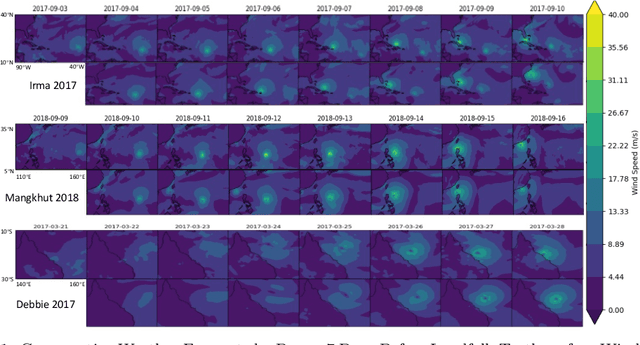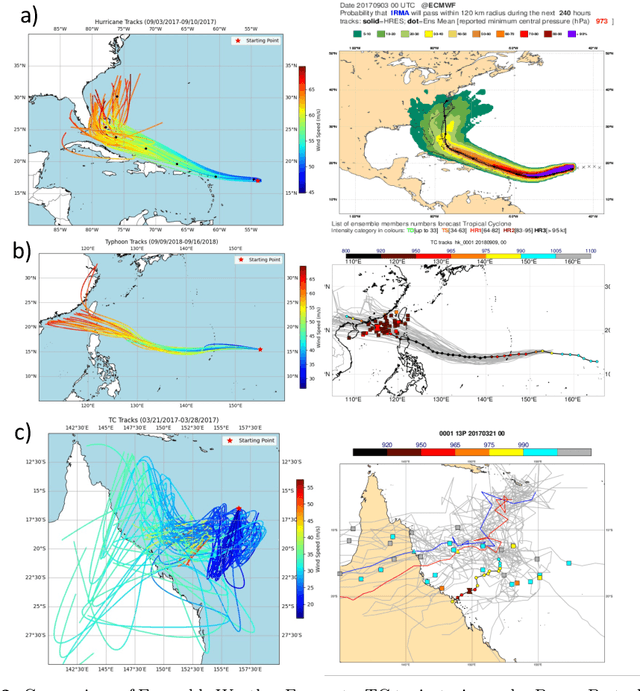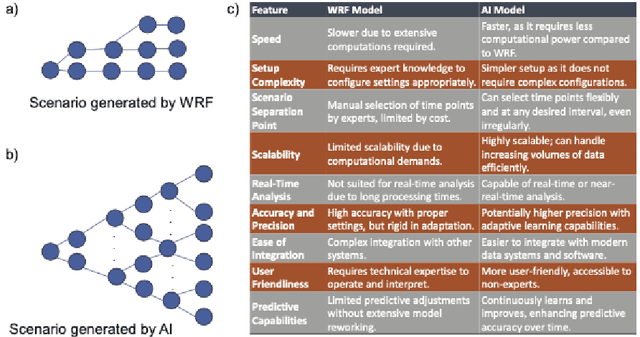Cao Wang
Potential Paradigm Shift in Hazard Risk Management: AI-Based Weather Forecast for Tropical Cyclone Hazards
Apr 29, 2024



Abstract:The advents of Artificial Intelligence (AI)-driven models marks a paradigm shift in risk management strategies for meteorological hazards. This study specifically employs tropical cyclones (TCs) as a focal example. We engineer a perturbation-based method to produce ensemble forecasts using the advanced Pangu AI weather model. Unlike traditional approaches that often generate fewer than 20 scenarios from Weather Research and Forecasting (WRF) simulations for one event, our method facilitates the rapid nature of AI-driven model to create thousands of scenarios. We offer open-source access to our model and evaluate its effectiveness through retrospective case studies of significant TC events: Hurricane Irma (2017), Typhoon Mangkhut (2018), and TC Debbie (2017), affecting regions across North America, East Asia, and Australia. Our findings indicate that the AI-generated ensemble forecasts align closely with the European Centre for Medium-Range Weather Forecasts (ECMWF) ensemble predictions up to seven days prior to landfall. This approach could substantially enhance the effectiveness of weather forecast-driven risk analysis and management, providing unprecedented operational speed, user-friendliness, and global applicability.
 Add to Chrome
Add to Chrome Add to Firefox
Add to Firefox Add to Edge
Add to Edge